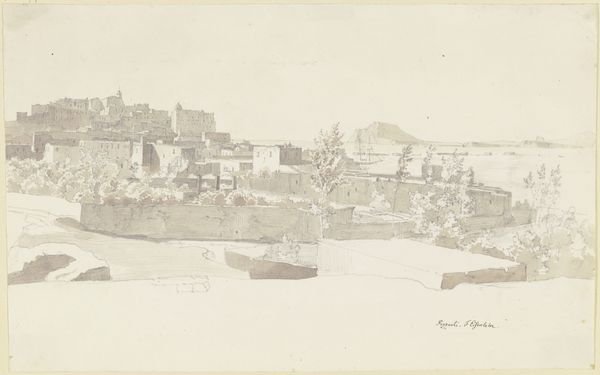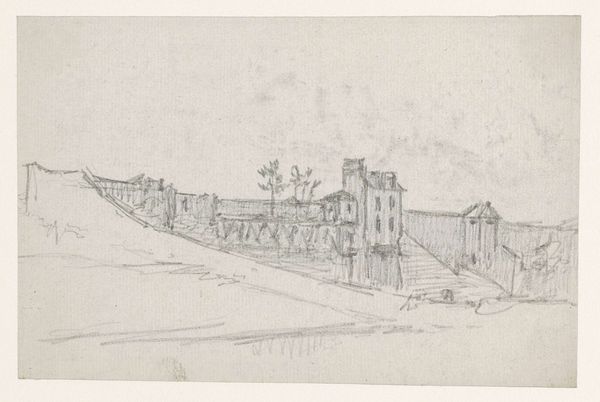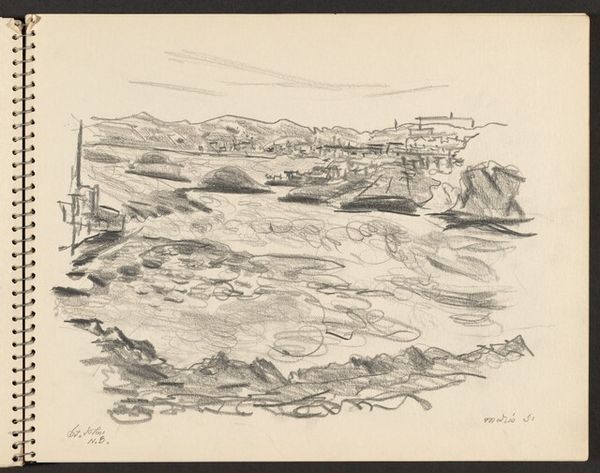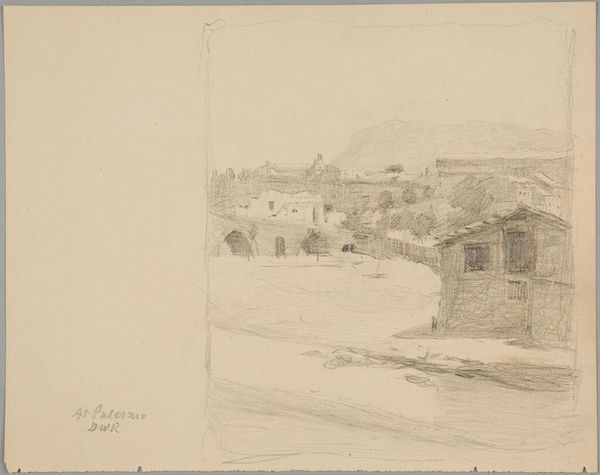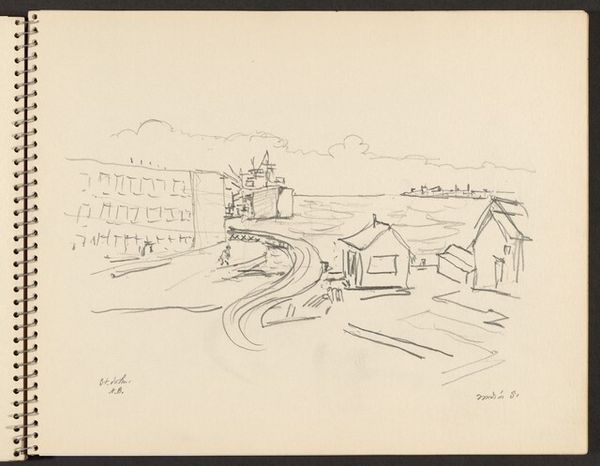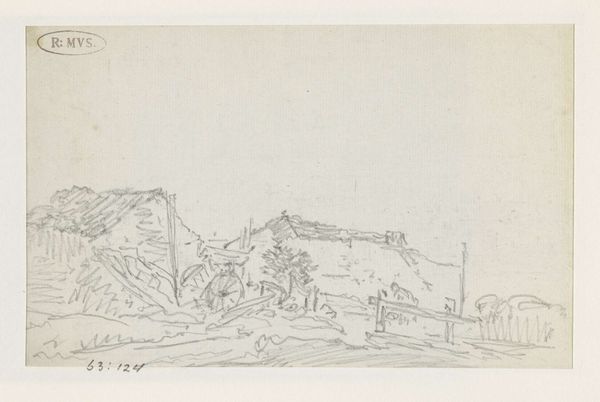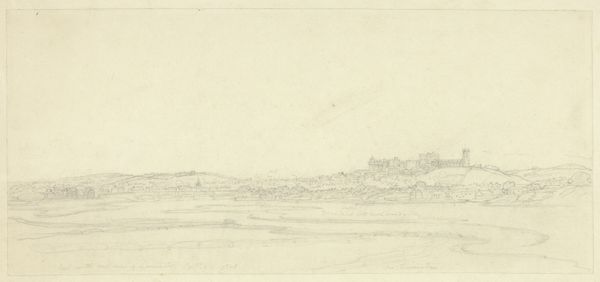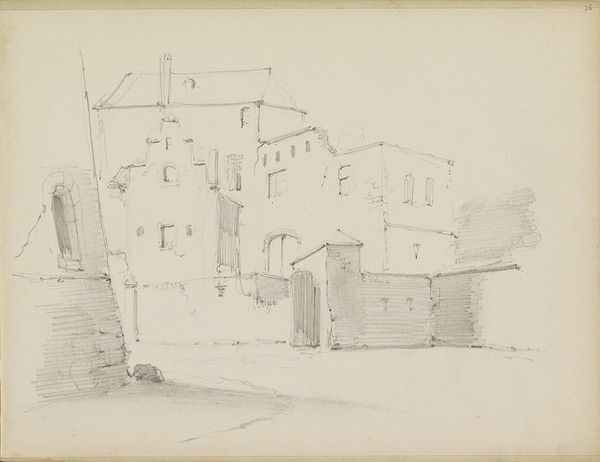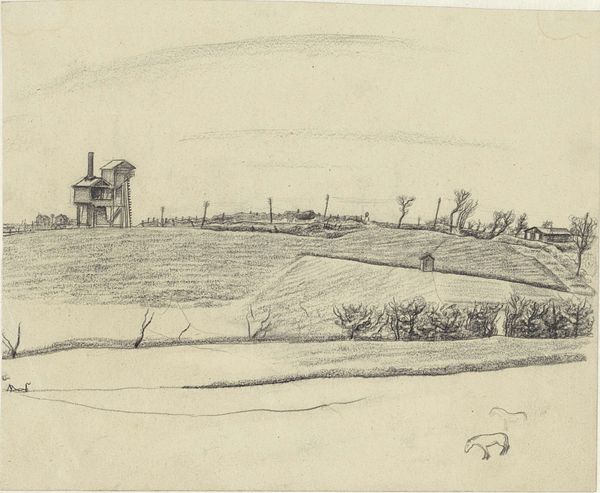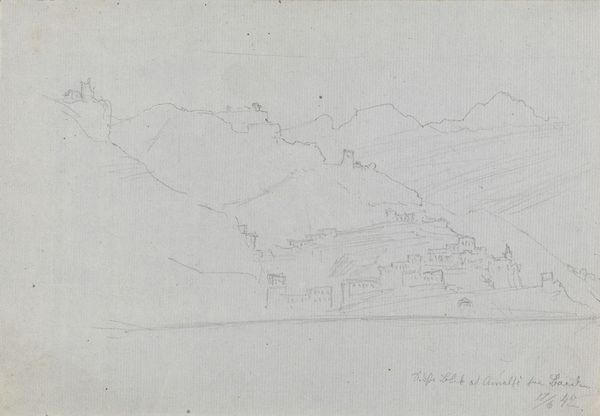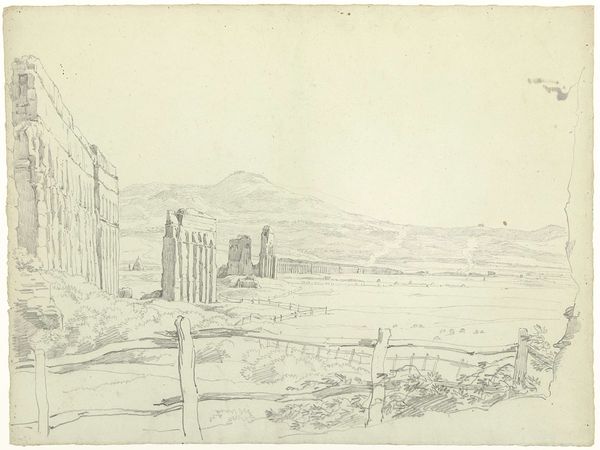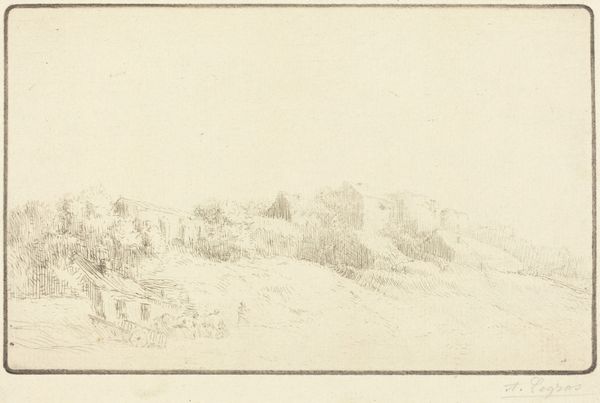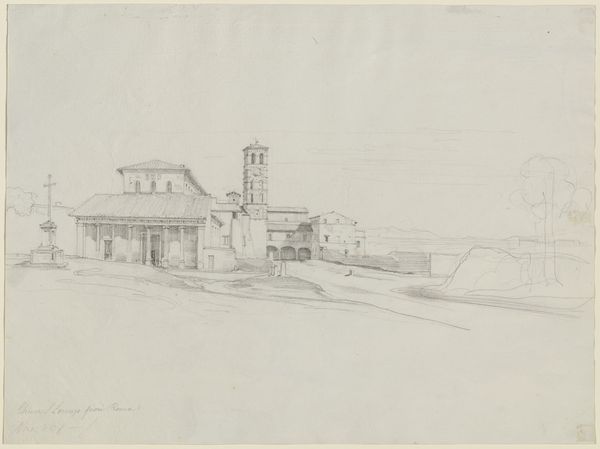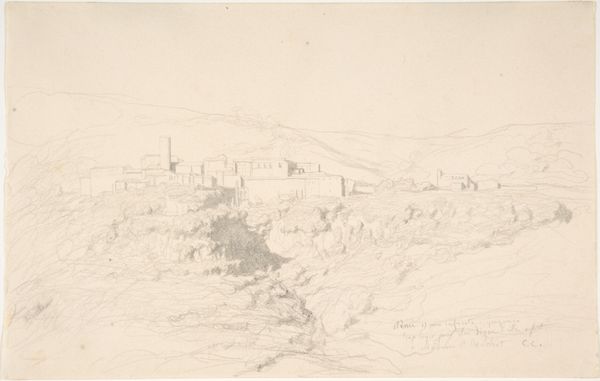
drawing, paper, pencil
#
drawing
#
neoclacissism
#
landscape
#
etching
#
paper
#
pencil
#
architecture drawing
#
cityscape
#
italian-renaissance
Dimensions: height mm, width mm
Copyright: Rijks Museum: Open Domain
Josephus Augustus Knip rendered this scene of Marone and the houses near Rome in delicate strokes. Dominating the scene are the mountains that were often associated with the sublime and the divine in Romantic-era art. Consider how mountains, throughout art history, have acted as a symbol of permanence and spiritual aspiration. In classical art, mountains often frame scenes of mythological or religious significance. The jagged peaks and immense scale evoke feelings of awe and insignificance, a potent combination that speaks to the deep-seated human desire to connect with something greater than oneself. Here, Knip uses the mountains not merely as a backdrop but as a stage upon which the drama of human existence unfolds, a reminder of the eternal forces shaping our transient lives. It is this tension between the fleeting and the timeless that engages us, resonating within our collective memories and subconscious fears.
Comments
rijksmuseum over 2 years ago
⋮
Marone is a town in northern Italy, east of Bergamo. In this drawing, too, the foreground and background have nothing to do with one another. Knip could have drawn the view of Marone on his way back to the Netherlands.
Join the conversation
Join millions of artists and users on Artera today and experience the ultimate creative platform.
